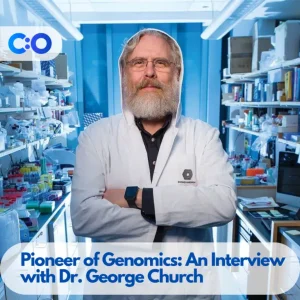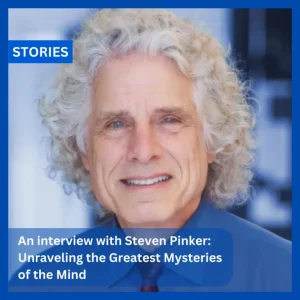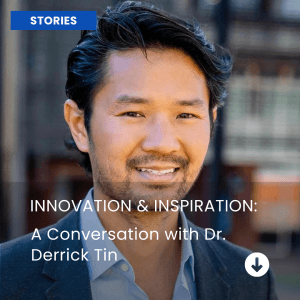

Graduation Date: BS, UC Berkeley (1999), MPH, Drexel University (2003), MD, Mount Sinai School of Medicine (2007), Emergency Medicine Residency (2010), Critical Care Fellowship (2012)
Indicators of success:
a. H index – 32
b. Grants that you have received – 10+? Many as a Co-Investigators and some as a PI.
c. Success of your lab’s members – Many successes and lots of collaborative groups. Many publications, grants, talks, and also many of my mentees have made full professors before me! For example, Dr He and I collaborate a good amount with multiple publications over the last year, including our most recent one on Emoji in Healthcare, published in JAMA
d. Twitter followers – 1,274
I am Jarone Lee, a physician, and researcher. I am critical care, emergency medicine, and disaster medicine physician at Massachusetts General Hospital and Harvard Medical School in Boston.
Currently, I’m working on a few different projects. The first project derives from my view that I’ve always thought about scientific research as something that should dovetail into my clinical work with patients. Regardless of if the research is on a benchtop in a laboratory, or at the bedside, my research has always focused on relating to the patient. The majority of my current projects focus on improving the processes of care for patients in the hospital. This includes how to improve the quality of care, processes of care, patient flow, and efficiency of our hospital and healthcare system. COVID-19 has shown us that the science behind delivering healthcare is just as important as researching the diseases themselves in a lab. For example, the COVID-19 vaccines changed the course of the pandemic; however, they had to be coupled with the science of how to deliver it safely, promptly, and at a mass scale to the population.
My other major area of focus is on using digital health and telehealth technologies to support humanitarian efforts across the globe.
I think part of it is I’ve always been interested in the processes of care, quality improvement, and the quality of care we deliver. I think for a lack of a better term, managing and leading healthcare delivery are as important as finding new medicines or researching new diseases. If we have something and we’re not able to deliver it to patients, it’s like not having it at all. Overall, healthcare continues to become more and more complex and we need to find solutions that fit it all together in a way that benefits our patients and society.
Technology and digital health solutions offer all the tools we need to connect people, patients, and healthcare. Especially today with the technology that we have, everyone should have access to healthcare and the medicines that they need; including in unexpected disasters.
Great question. I think that it requires (especially for this type of work) a team. We work as a team, and we will respond appropriately based on what’s needed. For projects on quality and process improvement, the care experience of our patients involves many different people across the entire hospital, from the physicians and nursing to transport and registration. Every single one of these touchpoints is important and key to being sure our hospitals run well. Be sure to get input from team members, so that we can find the pain points that need to be fixed.
Any good quality and process improvement program needs an evaluation aspect. This is to ensure that what was put in place works as intended. Sometimes as we try to fix the problem, we end up creating new ones or even exacerbating the very problem we wanted to solve; unintended consequences are sometimes hard to predict. As such, why not have a rigorous evaluation plan that goes along with any quality/process improvement plan? Not only would this be good for patients, but it is also publishable in academic journals. Publishing our results then helps other health systems learn from our experiences.
My day job is to make these projects progress forward. We will continue working to improve the patient care experiences and processes in our hospital. I plan to not only look at our micro processes but also try to look at our macro processes on how to improve our healthcare system as a whole.
I think that traditionally quality and process improvement projects have not been considered research. The good news is that it has changed and more recently, many of our higher-end medical journals have started publishing more of these types of manuscripts. Just remember that as folks think about their QI/QA projects, you need to keep an eye on how to evaluate them from a research perspective. Most of the time, it might just need a small tweak. For example, add in a pre-survey in addition to a post-survey. I would recommend not thinking about process improvement as something different from research. If medicine and care delivery is the field that they love, they should just do it. The academic side will come along as well.
We staff the hospital 24/7. My schedule rotates from days to afternoons, to nights, and then back to days, though not necessarily in that order. This can be done weekly, but not always. There’s no routine. Typically, I start my day (afternoon or night) with my caffeine fix. Previously it was coffee, most recently I only drink green tea and matcha. Next, I need to be sure I’m well-fed so I’m not “hangry” during a shift.
When I am not working in the hospital, my days are more routine. On these days, I’m typically focused on my research and administrative work. I always have my caffeine and breakfast, and then try to get to the gym. I try to fit in the things I see as important in my life for my mental health and wellness. For example, family is key. We have a seven-year-old and being able to have time with him and my family and getting outdoors with them keeps me in a good spot.
I’ll say that a typical day usually involves some type of work, whether it’s clinical work or academic, the timing is random. For my academic and administrative days, I typically do some writing, meet the teams on the hospital side and also meet with the teams on the international side for our telemedicine work. After work, I spend time with my family and make sure I’m fed. These are the major elements and they get shuffled around depending on if I’m on a day, evening, or night schedule.
I use my email as my to-do list and I send myself emails for things that I need to do. For notes, I am on the Apple ecosystem and use the Apple notes program, this way I can have those handy regardless of if I am on my phone or computer. Similarly, I started using some cross-platform, program coordination/management applications for my international work. Since my partners are in different time zones, with different primary languages, we found it best to use something that we can all edit and update together. For example, we use Google Docs, Notion, Slack, Canva, and Miro to name a few.
Yes, I try to keep up to date not only on the medical side but also on current events. I try to absorb multiple news sources daily. For example, I’m an avid reader of the New York Times, Boston Globe, and Wired, and also use news-collecting applications. Similarly, I also do the same on the medical side and read through the New England Journal of Medicine, JAMA, and many of my specialty emergency medicine and critical care journals. I also subscribe to a curated service to help digest new scientific articles as it can be overwhelming at times.
I’ll say family is a big one. Since we have a young kid and he’s at the age now where I can not only take him out but do things with him, we spend a lot of our time outdoors. This can be everything from hiking, and skiing to rock climbing, or just running around the park, in both cold and hot weather. We just took him downhill skiing for the first time the last winter and he loved it. He loved it so much that he does not want to go back to cross-country skiing. Besides that, I watch too much Netflix.
Being a junior faculty, physician/scientist is a very difficult place to be because there are many commitments across the board, you’re still working on your practice, and you’re trying to build up your research. Adding to it are also the personal and family needs, as well as other commitments from the hospital and otherwise. I remember as junior faculty, I felt like I needed to and wanted to get involved in all of it. Unfortunately, there are only so many hours in the day.
My advice is just to keep in mind that mentors are key, especially in finding the right mentor. I’m going to repeat that; finding the right mentor is key. Remember that mentorship isn’t all about finding someone who is above you. Mentorship also involves people around you at your level and at levels junior to your position. There are lessons and connections to be made at all levels. In my opinion, the “old” advice of finding one perfect mentor doesn’t work. It’s more about a matrix mentorship model, where you have many different mentors for different aspects of your life. I have mentors on how to do process improvement and a separate one on my tele-med work. Similarly, I will go to another mentor for helping me develop my leadership skills No one mentor can fit all these needs. The key is to know who to go to for what.
The next piece of advice I would say is to remember that you are not alone. Besides mentorship, it’s about the team and community. Finding the right team to join, to work with, to support each other, and even possibly to publish together is extremely important. The right team and community will also suffer with you through difficult times. There will be difficult times.
Lastly, on the pure research front, finding the right PI should be a top priority. In terms of the right PI, I do not mean the project, but the person themselves. My suggestion is to find the correct PI that fits your style and workflow. Also, find someone invested in your progress and development. Even if the project does not seem exciting, choose the PI mentor that will work with you, support you, and teach you. This will get you much further in your career than a horrible mentor with a great project.
Twitter: @JaroneLeeMD
Instagram: @JaroneLeeMD
Linkedin: https://www.linkedin.com/in/jarone/
Website: https://connects.catalyst.harvard.edu/Profiles/display/Person/100710






DISCLAIMER: ConductScience and affiliate products are NOT designed for human consumption, testing, or clinical utilization. They are designed for pre-clinical utilization only. Customers purchasing apparatus for the purposes of scientific research or veterinary care affirm adherence to applicable regulatory bodies for the country in which their research or care is conducted.